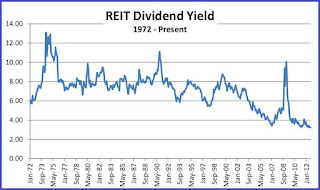REIT which stands for Real Estate Investment Trust is a derivative of Real Estate Investments. It is an investment that pools funds from several investments and uses the proceeds to buy income earning Real Estate Properties. Dividends accounting for about 90% of the income from the rents are then paid out to the investors at a specified interval. REITs do exist as in various forms, they can exist as equity, mortgage, hybrid, public traded, public non traded. see details about the types in this post Types and Composition of REITs. examples of Stock Exchange listed REITs you can buy Equinox inc, SBA Communications Corp
The following are the benefits investors are going to get by investing in REITs
Diversification: REITs provides investments with vast array of diversification opportunities. The do so through the following means;
- They distribute its real estate investments over geographical area by buying real estate investments from different countries, states regions. Diversification also occurs as they own real estate investments in different sectors of the economy.
- Their investments exists as debts and ownership real estate opportunities. Because REITs can exist as Equity and as Mortgage investments. The legal implication of this is important because debt instruments have higher payment priority over ownership during an insolvency.
- They show little or no correlation between stocks. Correlated investments tend to be affected by the same factors in the case of an economic downturn. The non correlated nature of these investment alternative help ensure that in a scenario of a stock market crash, your REIT investments are likely not going to be affected.
Dividends: The income stream from REITs fall in the high category this is especially true Stock exchange-listed REITs. Investors can expect a steady income from from this investments. As a matter of fact is accounts for over 29% of public and private pension plans and 401(k)s account. The dividends are also stable hence, an investor can easily project and plan his/her finance.
Fig 1:Chart showing dividend yield from 1972 to present
Fig 2: Chart showing the capital raised and dividends paid to REIT investors
Liquidity: Unlike traditional real estate investments, Stock exchange-listed REIT listed shares can be easily bought and sold.
Performance: Over most long-term horizons, stock exchange-listed REIT returns have been known to outperform the S&P 500. They have been averaging a return 9-10% return which is slightly higher than the 7% average of the S&P 500.
Fig 3: Chart showing mall REIT returns for the last three years
Transparency: The listing of Stock exchange REITs provides transparency on the operation of the underlying companies investing in Real Estate as the are required to follow the regulations of the Stock exchange such as Financial statement reporting, Financial Audits etc.
Potential Inflation Hedge: REITs also provides some form of hedge against inflation as rents tend to increase with inflation. This is very useful if you have other assets that are vulnerable to rapid inflation increase.
Professional Management: You get the privilege of having professional manage your investment when you invest in REIT. More so, you can access the quality and experience of the management before even making a decision as the underlying management managing a REIT can be seen easily in the reports filed quarterly by the companies on the exchange market.
How to Purchase REITs
Investors can easily invest in Stock Exchange Listed REITs, Mutual Fund REITs, Exchange Trade Fund REITs etc.Public non listed REITs and private REITs can also been invested in by contacting the companies offering them. If you are finding it difficult to find a suitable REIT there Investment Advisors/brokers can help analyze and select an appropriate REIT for you.
Minimum Capital Required for REITs Investments
The unit share price of a REIT determines its minimum Capital. Shares are sold in units and a minimum of 1000 units is said to be required to buy a share. Hence, an investor can determine how much to invest by multiplying the share price by the minimum number of units. For example if the price of a REIT is $1.2 the minimum capital required will be 1.2x1000= $1200.
Calculating Return for REITs
REIT’s yields can be calculated using the Distribution per Unit for instance $0.04. An investor may receive a payout every six months, so over one year, he would get an annualized Distribution per Unit of ($0.04x 2) = $0.08
Hence for a REIT of $1.10 per share. The yield will be $0.08 / $1.10 = 7.2%
Conclusion
REITs provide a nice investment alternatives for investors who are interested in real estate but don't want the hassles and rigors involved in selecting and managing real estate. Given the steady nature of their income and they fact that they are very liquid I don't know why any investor would not want to have an investment










No comments:
Post a Comment